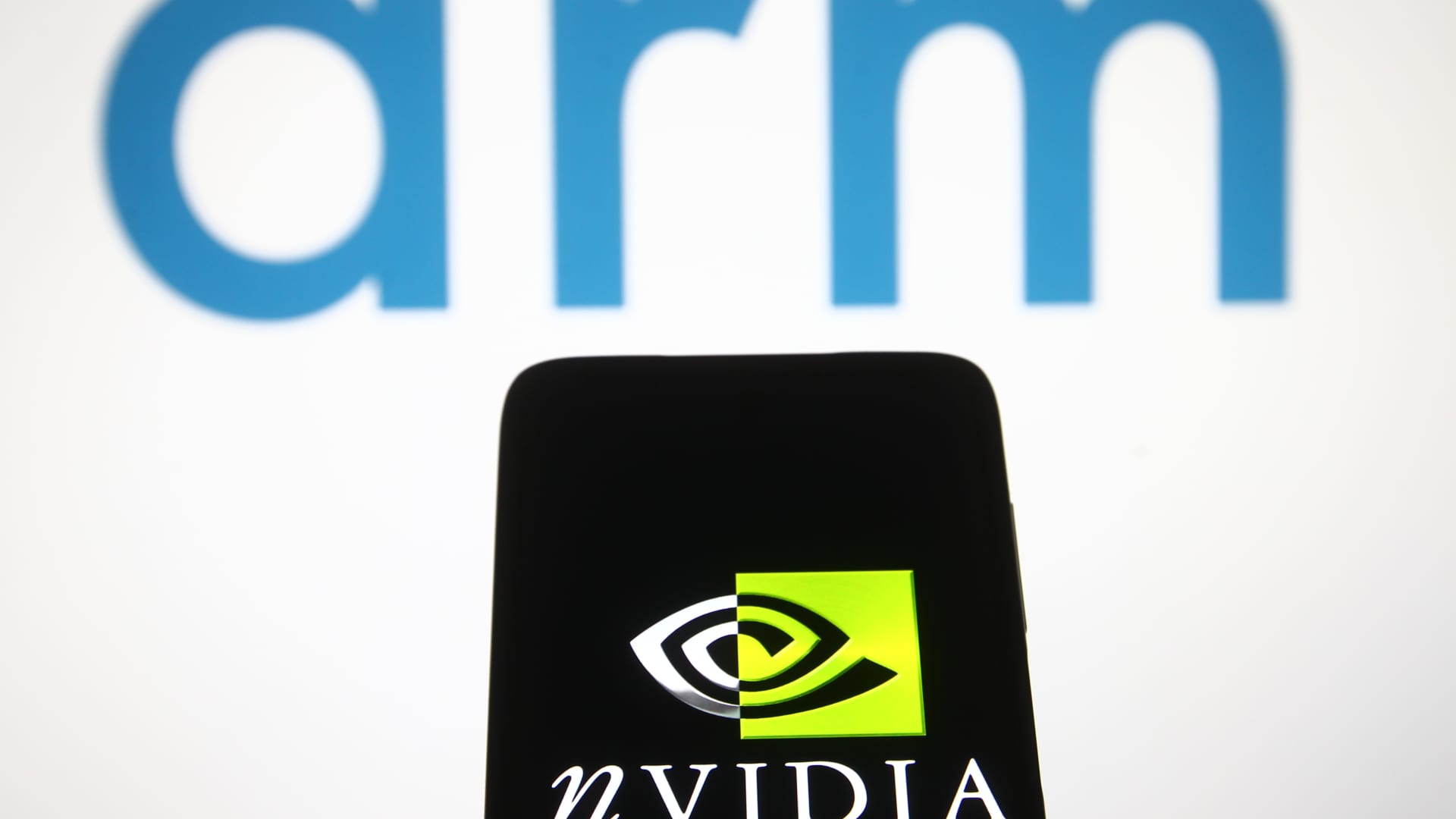### Summary
As chip designer Arm prepares for its Nasdaq IPO, investors are questioning whether it will experience exponential growth in the AI sector, as SoftBank CEO Masayoshi Son claims.
### Facts
- Arm is positioned as SoftBank's crown jewel asset and has been touted as a key player in the AI industry.
- SoftBank CEO, Masayoshi Son, believes that Arm can generate synergies with other AI-related companies and has created inventions with AI-powered ChatGPT.
- Investors are hoping the filing will reveal SoftBank's AI strategy and whether Arm is valued at $64 billion, as implied by Son's claims.
- However, analysts suggest that Arm is more AI-adjacent than at the center of the AI boom, as its expertise lies in energy-efficient CPUs.
- Nvidia, a graphics chips specialist, has emerged as a significant player in the AI industry, with its advanced semiconductors powering data centers for large language models like ChatGPT.
- Arm can potentially benefit from Nvidia's coattails, as Nvidia's chips require coupling with Arm CPUs, although there are other alternatives.
- Arm customers, such as Qualcomm and Apple, have designed AI-focused chips, while cloud computing companies like Amazon and Google have built non-Arm AI chips.
- Analysts believe that Arm's opportunity lies in providing intellectual property for AI and machine learning in end-user devices like phones and home appliances.
- The potential for AI synergies within SoftBank's portfolio is questioned, as not all companies can be considered AI-related.
- Some SoftBank portfolio companies may apply generative AI but that does not make them AI companies.
### Summary
Investors are waiting for Arm's Nasdaq IPO filing to determine if the chip designer will experience "exponential growth" due to the AI boom, as CEO Masayoshi Son claims.
### Facts
- 📈 SoftBank, the owner of Arm, has positioned the chip designer as a key asset for the conglomerate's AI-related companies.
- 💰 SoftBank valued Arm at $64 billion, but analysts value it around $47 billion.
- 💻 Arm does not sit at the center of the AI boom but is more AI-adjacent.
- 💡 Arm specializes in energy-efficient central processing units (CPUs) that can complement Nvidia's advanced semiconductors.
- 🌐 Arm's opportunity lies in providing intellectual property for AI and machine learning in devices used by end users.
- ❓ Analysts question whether 85% of SoftBank's portfolio companies can truly be described as AI-related.
SoftBank-owned Arm has filed for its initial public offering (IPO), which will be a major test for the IPO market that has been stagnant due to rising interest rates, and is a significant move for SoftBank as it pivots its focus to artificial intelligence. Arm's chip designs are found in almost all smartphones globally, and the company's listing has implications for SoftBank's rebound strategy.
The decision by British chip designer Arm Ltd to sell shares in New York over London has raised concerns over the weakening position of the London Stock Exchange and the overall relevance of the UK market, which has seen a decline in listings and market capitalization weights of British stocks in global indexes. The UK market is exploring potential changes to IPO rules to stimulate deal-making, including greater founder control and a sponsorship model that offers a single point of contact with the UK government. However, some believe that building an ecosystem of investors and analysts that fully value UK listings, along with better education of issuers and shareholders, is crucial for the market's reputation and growth potential.
Arm Holdings is aiming to become the next big chip stock and is preparing for its public listing, while focusing on establishing itself as a leader in the artificial intelligence sector.
Chip designer Arm signed up 28 banks for its upcoming IPO without disclosing a fee arrangement, demonstrating owner SoftBank's leverage over underwriters eager to participate.
Arm, the British chip designer, expressed concerns about potential restrictions on its business in China due to regulatory and trade war risks, which could impact its revenue from the country, according to its recent SEC filing for its IPO.
Semiconductor chip company Arm has filed for an IPO on the Nasdaq, seeking a valuation of up to $70 billion, but faces risks and potential headwinds due to financial challenges and geopolitical tensions with China.
Arm Holdings, the designer of central processing units (CPUs), has filed an F-1 with the SEC in its first step towards an initial public offering (IPO), seeking a valuation of $60 billion to $70 billion despite a decline in revenue and net income in the past year.
Nvidia's plan to acquire Arm Holdings for $40 billion is discussed in a video, cautioning against buying into the AI and Nvidia hype surrounding Arm's initial public offering (IPO).
Arm, the chip design firm, has attracted interest from major technology companies such as Apple, Google, and Nvidia, as well as chip foundry operators Intel, Samsung, and TSMC, in its bid to go public on Nasdaq with a potential market capitalization of $52 billion and $5 billion in new cash.
U.S. investors are eagerly anticipating several upcoming IPOs in the coming months, including Arm Holdings, Instacart, Klaviyo, and VNG, as they hope to capitalize on the recent rally in equity markets.
Chipmaker Arm debuted on the public markets with a successful IPO, seeing its shares climb over 20% and its market cap exceed $60 billion, marking a significant moment for the tech sector.
Arm stock is now trading in rare territory, but the company needs to prioritize AI development in order to maintain its growth.
The Arm IPO and tech stocks have surged in value, making them expensive, and investors may want to consider investing in an ETF to capture the potential gains.
ARM Holdings' lackluster performance following its IPO debut raises questions about the company and the IPO market, as investors may be rotating out of high-risk assets and dampening the prospects for new listings.
Intel announces plans for an IPO of its programmable chip unit, resulting in a rise in Intel stock.
